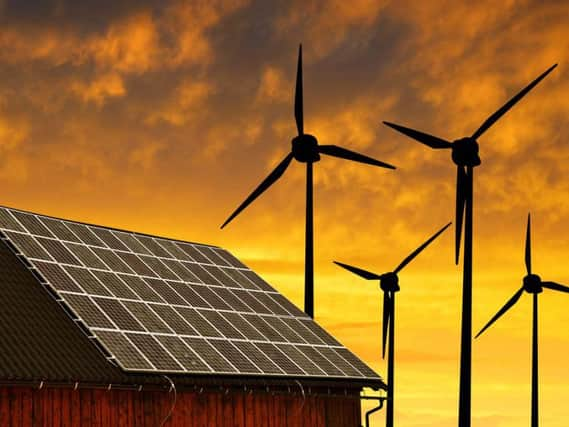Time for business to take the natural approach


Thankfully, this situation is now changing with a growing movement to understand better how business relies on nature.
Natural capital is the stock of natural resources – including soils, air, water and all living organisms – which provide people with a wide range of goods and services and which underpin our economy and society.
Advertisement
Hide AdAdvertisement
Hide AdApplied to business, it means that alongside financial profit and loss, positive or negative changes in natural assets are also recorded.
Businesses identify the natural assets they use or affect within their supply chain, and include them in investment planning and risk analysis.
The concept is not necessarily new, but what is exciting is the growing global appreciation within business that our consumption of natural resources is not sustainable and needs to be better represented on balance sheets.
As a commercial business, the Crown Estate manages a diverse property portfolio, working with and facilitating opportunities for land-based businesses, marine enterprises, renewable energy developers and urban property.
We take a long-term view and seek to ensure that the resources on which our business depends are used sustainably.
Valuing and safeguarding the environment is vitally important to the long-term interests of those who earn a living from the land and sea.
In a world threatened by climate change, the natural flood defences provided by forests or the pollination of crops by insects are examples of where sustainable businesses depend on protecting natural capital.
The Crown Estate has developed an approach which incorporates elements of natural capital accounting and seeks to directly measure the value of our “total contribution”.
Advertisement
Hide AdAdvertisement
Hide AdIt provides us with a deeper understanding of the impact of our decisions on all our capitals – including natural capital.
An understanding of these capitals and their inter-connectivity is increasingly integrated into our thinking and decision-making processes.
In Scotland, we are exploring – in partnership with land management organisations and agencies – ways to help develop methodologies and tools to help farmers and other land managers engage with the natural capital agenda.
Agriculture, forestry and game management are economically important rural industries that contribute significantly to the rural economy. How these activities are carried out can have a direct impact on our natural capital.
While great efforts have been made to improve the environmental performance of land management, there are still concerns that over time there is a net depreciation, particularly in relation to soil health, biodiversity loss, water quality and greenhouse gas emissions from farming and peatland management.
We hope this work will raise awareness of the evolving natural capital agenda and provide mechanisms which drive genuine benefits for Scotland’s communities, economy and environment.
Sustainability lies at the heart of our decision making. This is not about putting a price on nature or being able to value everything financially.
The natural capital agenda provides a framework for developing accounting mechanisms for capital flows beyond the financial and is becoming an increasingly accepted way for business to think further ahead, better connect with and understand the natural world.
Our collective future depends on progressive and forward thinking businesses grasping this mantle.
Andy Wells is head of property at the Crown Estate Scotland Portfolio